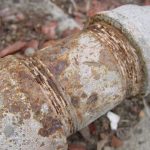Technology has transformed our lives, giving us unprecedented control of various aspects of our living environment. One area in particular where smart tech has revolutionized how we live is plumbing: smart plumbing solutions have dramatically improved how we manage water while increasing efficiency, convenience, and sustainability – this blog examines all these innovations available to homes to modernize water management systems and offer solutions.
Introduction to Smart Plumbing
Smart plumbing combines advanced technologies into traditional plumbing systems in order to enhance functionality, efficiency, and user control. Such solutions often involve sensors, automation and connectivity with the Internet. Homeowners can then remotely monitor and manage water use remotely – not only is smart plumbing used to reduce water waste by tracking usage remotely but it can also detect leaks early, prevent water damage from happening, optimize heating systems for greater energy savings – providing additional savings than expected!
Key Benefits of Smart Plumbing Solutions
Smart plumbing solutions offer many advantages beyond their basic functionality, including efficiency, convenience and peace of mind for homeowners. Here are the main advantages to adopting smart plumbing solutions into your home:
1. Water Conservation and Efficiency Smart plumbing solutions can offer many benefits that help conserve water, such as optimizing usage. As resources become scarcer and utility costs escalate quickly, efficient use becomes even more crucial.
- Real-Time Monitoring: Smart water meters and fixtures offer real-time information about their consumption, enabling homeowners to track consumption patterns and identify areas for saving water. If your bathroom shows unusually high consumption levels, this could indicate leaky fixtures or require upgrades – in such instances real-time data can provide invaluable assistance in tracking usage patterns and cutting waste.
- Smart water systems provide homeowners with detailed analytics on their water consumption patterns, giving them insight into their consumption habits and helping them make educated decisions regarding conservation efforts, like installing low-flow fixtures or altering daily habits accordingly. With such information at their fingertips, homeowners can make more informed decisions regarding conservation efforts – installing low-flow fixtures or altering daily habits accordingly.
- Automated Controls: Some smart systems offer automated water flow adjustments based on usage patterns and external conditions such as weather. For instance, smart irrigation systems may forgo watering your lawn when rain is forecast – saving both water and utility bills in the process.
2. Leak Detection and Prevention Its Leaks can waste water and cause extensive property damage if left undetected for too long, but smart plumbing systems excel at detecting and fixing them before they become major issues.
- Early Detection: Smart leak detectors utilize sensors to quickly identify even the tiniest leaks before their presence is apparent, often before their leak becomes noticeable. Ideally placed near potential sources of leakage like under sinks, toilets or water heaters for optimal results.
- Alerts and Notifications: Smart systems use instant alerts to notify you when there is a leak detection, allowing for swift action such as remotely shutting off water supply to limit further damage.
*Preventive Measures: Smart plumbing solutions that include automatic shutoff valves that activate when leaks are detected can be invaluable preventive solutions against flooding and costly repairs, offering valuable peace of mind.
3. Comfort and Control Intelligent plumbing solutions provide unsurpassed ease and control of the water management system in your home.
- Remote Management: With smart plumbing, staying informed and in control of your water usage has never been simpler thanks to an app on your smartphone. No matter where you are – from work or vacation – you can keep an eye on and adjust as necessary based on its status.
- Customization: Smart fixtures like faucets and showerheads often feature customizable water flow and temperature settings, to provide optimal comfort and efficiency tailored specifically to each user. This enables them to deliver optimal comfort and efficiency tailored specifically for them and their preferences.
- Voice Activation: Many smart plumbing devices now allow users to easily manage their system with voice assistants like Amazon Alexa and Google Assistant for added ease and convenience in managing it hands-free. This provides yet another layer of ease into daily routine.
4. Energy Efficiency
High-performance plumbing solutions can significantly lower energy use for water heating purposes.
- Smart Water heaters: These devices can adapt their heating schedule based on how your family utilizes hot water, making sure it is available when required while minimizing energy waste during periods with reduced demand.
- Temperature Control: Modern water heaters and thermostats enable precise temperature regulation, helping save energy by quickly maintaining desired levels.
- Energy Usage Monitoring: Smart plumbing systems often include features to track energy use for water heating purposes, which provides insight that may help optimize efficiency and bring down utility bills.
5. Increased Safety should always be top of mind in any home, and modern plumbing solutions contribute significantly towards providing a safer living environment.
- Flood Prevention: Smart leak detectors and shutoff valves work together to help combat flooding by early detecting leaks and cutting off water supply as necessary – an especially helpful strategy in basement areas where moisture damage could have long-term repercussions.
- Mold and Mildew Prevention: When applied quickly, smart plumbing solutions help protect occupants against mold and mildew growth that poses potential health hazards. By responding rapidly to leaks or moisture accumulation issues, smart plumbing solutions help avoid outbreaks that could have serious ramifications on health of their users.
- Health Monitoring: Some advanced smart plumbing systems offer health monitoring capabilities that allow them to monitor water quality for contaminants that might threaten human health, ensuring that drinking, cooking, and bathing water remains safe for consumption.
6. Cost Savings
While investing in smart plumbing solutions requires an initial investment, over time their long-term cost savings are significant. * Lower Water Bills: By efficiently managing water usage and detecting leaks early, smart plumbing systems can drastically decrease monthly water bills and costs.
- Reduce Energy Costs: Smart water heaters and energy-saving fixtures help lower energy usage, leading to lower utility bills.
- Avoid Major Repairs: Early leak detection and prevention can reduce the risk of expensive water damage repairs, which could potentially cost homeowners big money to fix. By acting swiftly to address issues as soon as they arise, homeowners can avoid incurring large repair bills for extensive property damages and repairs.
7. Environmental Benefits* Smart plumbing solutions contribute to creating a more eco-friendly and sustainable living space in homes around the country.
- Reduce Water Waste: Smart systems help conserve water by optimizing usage and early leak detection, providing substantial benefits both to individual households as well as efforts to conserve our natural resources.
- Energy Conservation: Utilizing energy-efficient plumbing solutions helps your home reduce its carbon footprint, aiding climate change mitigation efforts.
8. Property Value Enhancement
Smart plumbing solutions can add considerable value to any property. Energy-efficient homes that feature smart plumbing systems tend to attract buyers more readily – making this an attractive feature in today’s real estate market.
- Market Appeal: Homes equipped with smart technology tend to look more modern and desirable among prospective buyers who prioritize convenience and efficiency.
- Long-Term Investment: With savings on utility bills and improved safety and convenience provided by smart plumbing systems, your home becomes an appealing long-term investment.
9. Types of Smart Plumbing Solutions
Smart plumbing solutions come in many different forms, each designed to improve an aspect of home water management. From monitoring usage and leak detection to optimizing water heating efficiency, these technologies give homeowners greater control and efficiency than ever. Below we outline some of the major types of smart plumbing solutions currently available for homes.
1. Smart Water meters for every home
The cornerstone of any intelligent plumbing system, smart water meters provide real-time insight into water usage across your entire household.
2. How They Work
Smart water meters are installed at the main water supply line entering your home and use ultrasonic or electromagnetic sensors to accurately measure water flow. They then transmit this data directly to a central hub or smartphone app for analysis of consumption patterns and insights into patterns of use.
- Real-Time Monitoring: Gain real-time insight into your water usage, providing real-time insight and the opportunity for improvement. Leak Detection: Rapidly detect any unusual spikes that could indicate leaks immediately so swift action can be taken against potential issues.
- In-Depth Analytics: Gain a deeper insight into how various fixtures and appliances use water, providing more focused conservation efforts.
- Leak Detectors for Smart Leak Prevention * Leak detectors are essential devices for safeguarding water resources and conserving resources by helping detect potential sources of leakage such as under sinks, near water heaters, or appliances.
- Smart Leak Detectors use moisture sensors and flow monitors to detect leaks. Once they do detect one, the device sends an alert directly to your smartphone so you can take immediate action.
- Early Detection: By quickly spotting leaks early enough, early detection can reduce potential water damage or mold growth issues that could develop later.
- Remote Alerts: Receive notifications directly on your smartphone to facilitate rapid intervention when needed even when away from home. * Peace of Mind: Gain additional safety and protection for areas prone to leakage within your home.
3. Smart Water Heaters Smart water heaters feature advanced features like remote control, scheduling and energy usage monitoring that enable homeowners to tailor their water heating needs based on household requirements while simultaneously cutting energy usage costs.
Smart water heaters connect directly to your Wi-Fi network, enabling you to manage them remotely via smartphone app and adapt their heating schedules based on usage patterns to ensure hot water is always available, when necessary, without wasting energy. In addition, their benefits extend far beyond simply this capability.
- Energy Savings: Optimizing heating schedules to minimize energy costs. Convenience: Guarantee hot water availability tailored specifically for you needs. Remote Control: Manage settings from any distance for improved efficiency and comfort.
4. Smart Faucets and Showerheads
Smart faucets and showerheads are designed to reduce water usage while offering optimal comfort, such as touchless or voice activated design; along with features that track usage.
How They Work Smart faucets and showerheads utilize sensors to monitor water usage. Some models allow users to set limits or receive alerts when specific amounts of water have been consumed, helping reduce consumption without compromising comfort levels. Benefits
Water Conservation: Conserve resources without compromising comfort. Improvement of Hygiene: Touchless operation reduces germ spread. Customizable Settings to Achieve Maximum Comfort and Efficiency.
5. Smart Irrigation Systems
Smart irrigation systems ensure your garden or lawn receives just the right amount of water without waste, automatically adapting their schedule based on weather and soil moisture conditions to deliver what they require for growth and sustenance.
How They Work Smart irrigation systems rely on sensors embedded into the soil to monitor moisture levels and adjust watering schedules accordingly, while weather forecasting integration allows these systems to work according to plan. They’re remotely managed using smartphone apps for maximum convenience.
What Are Their Advantages Exactly:
- Smart irrigation systems bring many advantages. They monitor moisture levels continuously while adapting to weather forecasting conditions for flexible scheduling options and remote management capabilities – ultimately outweighing their costs in every regard.
- Optimizing watering schedules to minimize unnecessary use. Optimizing plant health with the appropriate amount of water by automating adjustments based on real-time data to promote healthier growth while decreasing manual intervention.
6. Smart Water softeners Water softeners provide a convenient and cost-effective solution to combating hard water’s adverse effects, by extracting calcium and magnesium minerals which contribute to hardness in taps and other sources. They can even be remotely monitored to maximize convenience and efficiency.
How they Work Smart water softeners connect directly to your home’s water source and use sensors to monitor hardness levels in your tap water, then allow users to manage its performance through an app on their smartphone for convenient adjustments and monitoring of settings and performance. There are numerous advantages associated with their use; including improved tap water quality as well as lower utility costs and better environmental health outcomes. These technologies also save on utility costs by conserving electricity. (see also Benefits of Smart Water Softeners)
- Improved Water Quality: Reducing scale build-up in pipes and appliances extends their lifespan while improving convenience, remote monitoring/control and remote system monitoring/control.
- Convenience: Monitor/control your system remotely to ensure optimal performance – saving both time and money in maintenance/repair costs related to hard water issues.
- Cost Savings: Decrease maintenance/repair expenses due to hard water conditions.
Smart toilet systems feature advanced features like automatic flushing, bidet functions and water consumption tracking to increase both comfort and efficiency.
How They Work
Smart toilets utilize sensors and connectivity to perform various functions. For instance, they may automatically flush when you stand up, activate bidet functions based on user preferences or monitor water usage via smartphone apps for tracking purposes; plus, they provide insights into its usage for better insight into its impact.
Benefits:
- Water Efficiency: Optimize flushing and water usage to minimize waste.
- Comfort Enhancement: Create an enhanced experience through features like heated seats and bidet functions while offering greater hygienic conditions.
- User Insights: Track usage patterns and receive maintenance alerts to ensure optimal performance.
8. Smart Water Filtration Systems Smart water filtration systems provide your home with clean and safe drinking water by monitoring quality of drinking water sources, notifying when filters need changing, and informing when replacement filters should be purchased or changed out. They even alert users when new filters should be purchased or changed out!
How They Work:
Smart water filtration systems use sensors to continuously monitor the quality and filter performance of drinking water, including contaminants and filter performance, sending real-time information back to phones through apps with real-time alerts and data. Their benefits also include real-time alerts.
- Improved Water Quality: Receive safe drinking water by monitoring and controlling filter performance.
- Added Convenience: Stay informed when filters need replacing in order to maintain consistent water quality.
- Health Benefits: By limiting exposure to contaminants, you can improve both your own and your family’s health.
9. Smart Shower Systems
Smart shower systems feature features such as precise temperature control, water usage monitoring and customizable experiences to maximize comfort while encouraging water and energy conservation for maximum enjoyment with minimum environmental impact. These systems ensure maximum enjoyment with minimum environmental impact.
Smart Shower Systems Work
Smart shower systems utilize digital controls to manage temperature and flow for maximum convenience, can track usage metrics via smartphone apps, provide insights and offer preset profiles or voice control functionality as additional features. Their Benefits:
- Create Your Perfect Shower Experience By Precisely Controlling Temperature And Flow
- Settings Water Conservation: Minimize water usage to promote efficiency.
- Convenience: Manage Your System Remotely Or Via Voice Command For Greater Convenience
Integrating Smart Plumbing Solutions in Your Home
Smart plumbing solutions can revolutionize how you manage water usage, enhance convenience and increase overall efficiency within your home. Implementation involves evaluating current needs, selecting compatible devices, ensuring installation and maintenance procedures are in place as well as planning to ensure seamless integration into everyday life.
1.Here is an outline on how smart plumbing solutions can seamlessly fit into your life:
- Before investing in smart plumbing solutions, take some time to evaluate both your needs and those presented by your existing plumbing system.
- Take note of water usage patterns, age of components and any issues such as leaks or rising utility costs related to existing pipes that arise regularly.
2. Set Your Budget When selecting smart plumbing systems, the costs can vary based on complexity and device count, so make sure your budget accounts for those solutions that offer the greatest benefit to your home. Prioritize solutions which deliver real value by setting realistic expectations when setting priorities.
3. Select Compatible Devices
It is crucial that the smart plumbing devices you purchase are compatible with each other as well as with your home’s existing infrastructure, making management of them simpler. Seek devices which can be integrated into one app or platform for seamless control.
4. Professional Installation
While certain smart plumbing devices can be easily installed by themselves, others require professional installation by licensed plumbers to operate effectively and ensure proper implementation and functionality of each device installed. Investing in professional installation ensures the best outcome and performance from every device installed.
5. Regular Maintenance/Checks
To keep smart plumbing systems at their optimal performance, they require regular maintenance. Sensors and devices must remain clean; software updates should be applied when necessary; and regular checks to make sure everything is operating according to plan are necessary to ensure optimal functionality.
Case Studies of Smart Plumbing Solutions To gain a clear view of how smart plumbing solutions influence real world applications, it can be useful to examine real world examples of their use. Such case studies provide tangible proof that these technologies can alleviate common plumbing problems while leading to significant cost savings and improving home water systems overall.
One California homeowner installed an advanced smart plumbing system featuring a smart water meter, leak detectors and irrigation controller. The smart water meter showed that an old toilet was using significant quantities of water; by upgrading to one more efficient model the homeowner successfully reduced their bill by 20%.
Future of Smart Plumbing
The future of smart plumbing looks bright, with technological innovations making these systems more accessible and efficient than ever. Here are a few trends to keep an eye out for in this sector:
1. Integration with Smart Home Ecosystems
An increasing trend is for plumbing solutions to be seamlessly integrated into smart home ecosystems, offering seamless interaction with devices like thermostats, lighting controls and security systems – ultimately creating an effortless living experience for residents.
2. Artificial Intelligence and Machine Learning
Artificial intelligence (AI) and machine learning will revolutionize smart plumbing by enabling systems to learn from usage patterns and make predictive adjustments that increase efficiency and customizability for greater efficiency and customization.
3. Focus on Sustainability
With rising concerns over water scarcity and environmental impacts, smart plumbing products will increasingly incorporate eco-friendly features to save water while being eco-friendly in design. Look out for more advanced water-saving technologies and eco-friendly materials becoming standard features of these smart solutions.
4. Improved User Interfaces
Smart plumbing systems will become increasingly intuitive and user-friendly, giving homeowners access to in-depth insights and control over their water use.
Smart plumbing solutions are revolutionizing how we manage water in our homes, offering unprecedented control, efficiency and convenience. By integrating advanced technologies such as sensors, automation and connectivity into these systems, real-time insights into water usage, early leak detection as well as optimizing consumption as well as energy consumption can all become available to users. As technology progresses further, so will its promise for smart plumbing – making it an essential consideration in modern households.





